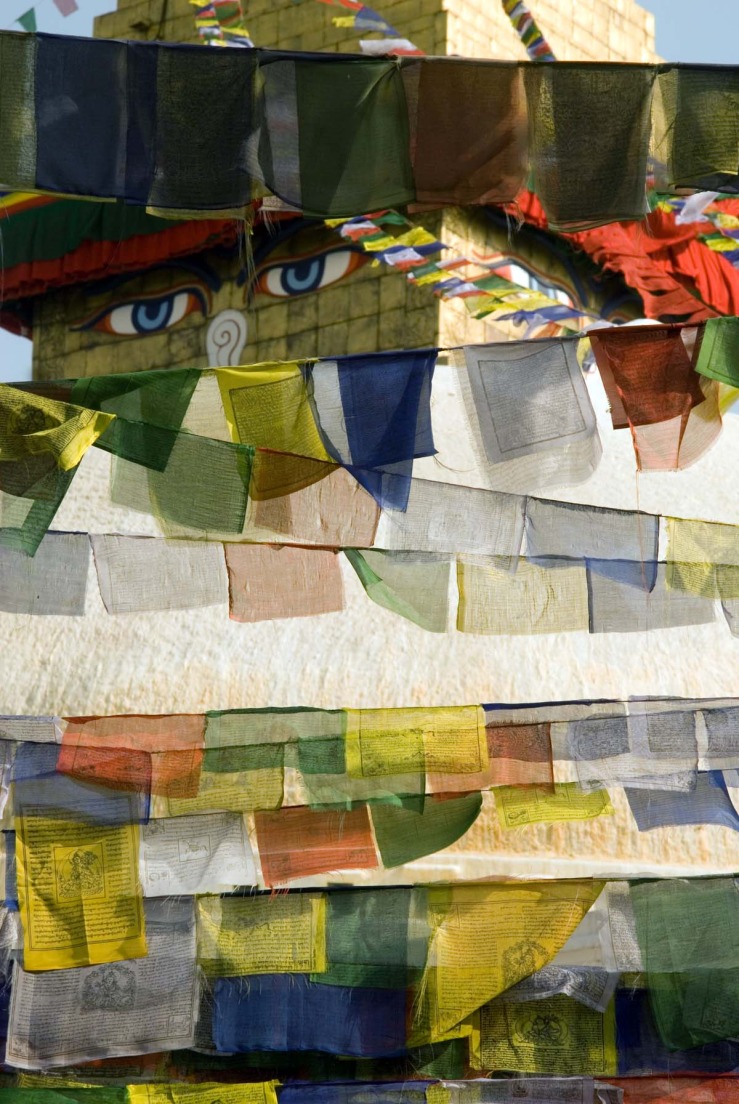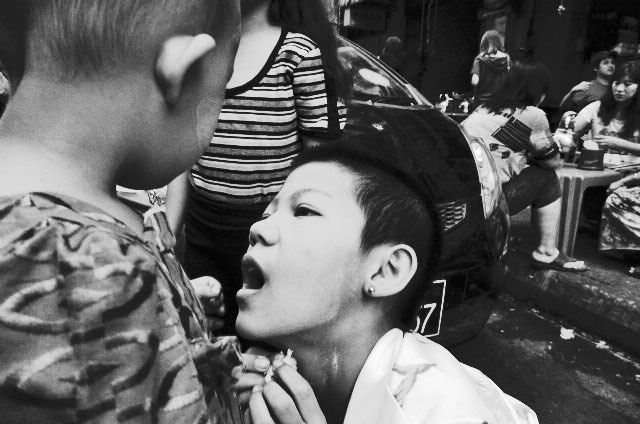Temporary management art - TLC 35
Bursa brought in a young teacher named Instant Bull. He didn’t last long. He missed the nightlife, friends and mommy who after 100 tearful years still did everything for her little baby boy. He was spoiled like everyone. He ran home pleading, Mother, may I grow up to be free and courageous? No. Go to your room, no dinner and no social network time bandits. Self-censorship is everything we believe and practice with mind body and soul so shut your trap.
Management brought in Spin, a schizophrenic alcoholic from Down Under. Night after night he carpet-bombed the teachers’ apartment with demonic deliriums.
“They’re here, they’re here,” he wailed in catatonic fits thrashing on the floor flailing nuclear arms into space. “Help me. They will kill me. Look, can’t you see them?”
“What can I do about this idiot?” said a scared shitless rail thin female Turkish/English teacher on temporary duty. The brilliant neurotic girl from Hoagie Sophia, her black hair clogging shower drains, addicted to TV, sugar and perpetual sadness missed her mother.
Communicating through sewer channels she told Constantinople management Spin had to go. They yanked him out like a bad molar.
She’d been with the company for five years as a Personal Tutor doing bi-linguine translations. Her English placation skills enabled students with false modesty. She’d quit for a translation job with another Istanbul company, discovered it wasn’t so hot after all and returned to TLC dragging her miscalculation.
Now she worked as a management spy. Istanbul gave her a title: Director of Personal Tutors. She traveled to nine centers evaluating and training tutors. She knew the system. Her social skills were shit. She was the perfect corporate drone head.
Lucky met her in Ankara where she spied for a month. She spent her time chatting with her yet to be met and later to be left boyfriend in Johannesburg. “I hate Ankara.”
“If you want to play the blues you gotta pay your dues,” said Lucky.
“I’m tired of dealing with shallow minds above and below me,” she said sipping tea on the balcony. Bamboo listened.
“I am one of them, sent around to keep an eye spy on barbarian natives. They told me to train the tutors who’ve seen through my transparent disguise. I’m not fooling anyone but myself. I got the promotion I wanted and they used me.”
“Welcome to The Dream Machine.”
“In the future I will escape to Johannesburg and live with a paroled heroin junkie running a safari eco-outfit. I will wear an orange day glow jumpsuit emotionally attached to my despondent mother in Istanbul. Mama spends her life chained to a sink filled with life’s dirty dishes.”
Late one day as Lucky tended rose petals, thorns and fed Winter Hawk day old bread annoying idle businessmen slouched against a BMW downstairs yelling, “Where in the hell are all these crumbs coming from?” the director called from Constantinople.
“Would you like to move to Bursa?”
“Yes. When?”
“Next Monday. We need stability and maturity in the new center.”
“The center is a spiral of stardust. I’ll bring Bamboo. Thanks for the chance.”
His life was walking, writing, photography, helping others be more human, and spreading prosperity. Nurturing Bamboo as a calm lunatic he passed through with detached discernment. He was Mr. Fix-it, Mr. Dependable and a stable element in the periodic language table.
After he settled into Bursa, management realized they needed more temporary help. They brought in an experienced sadomasochistic Australian misogynist from another center to manage the show for ten days. He was fifty, a divorced womanizer with relationship and alcohol issues, an aggressive fool pawing female students and chatting with his twenty-one year old girlfriend in city E. He knew the TLC system and little else. He had a long running feud with management. They fired him.
The revolving TLC door circled through ineffective zones.
*
“People here in Turkey,” said Zeynep, “are good at two things, eating and sitting. Sleeping and fighting are close behind.”
“Yes,” said a rag and bone merchant boiling clothing and animal skins for Omar’s palimpsests, “we are surrounded by fools and incompetents. Reading and writing is for people with time, money, critical thinking skills, courage, humor and a future. Not to mention social intelligence. Natives make perfect excuses. They celebrate their perceived victimization and prolonged adolescence with self-pity and loathing.”
“Have you eaten yet,” asked Curious. “We always ask people about food first in China.”
“It’s the same here,” replied Zeynep, “satisfying basic needs.”
A chorus of 15,001 Chinese university students sang, “The less I do, the less likely I am to make mistakes, and the fewer mistakes I make, they less I am criticized. It’s easier to do nothing.”
“Thanks for a long sentence filled with verbs and truth-value meaning,” said a Cambodian orphan caressing a Burmese ruby reflecting 10,000 things in an elegant universe.
“My name is May Be,” said a Turkish woman filing for divorce after centuries of emotional totalitarian terror. She faced her family, friends and strangers with fresh self-esteem.
“He lied to me. I saw through his deceit and irresponsibility. I sent him home to his mama. When he realized his stupid shallow emptiness he ran back pleading, exhorting, crying, bribing and threatening me with personal, physical and emotional disaster, trouble, death and so forth. I didn’t buy his song and dance. It’s rare for a woman here to file for divorce.”
Winter Hawk sang a single throated bird song: freedom’s knowing how big your cage is.
“Learning is easy. Remembering is difficult. We have storage ability and retrieval capability. Speak memory,” said Zeynep doodling on papyrus.
“Memories are for navigating now,” said Lucky. “What I’m telling you is true, or at least as much of it as I remember. I know I have false memories. Everyone does. Imagine people in a world without memory. No past. No things, objects, identification, grasping or attachment. Only patterns and sensation forms like flowing water or butterfly wings brushing air. Living in an eternal present.”
“You are brilliant. Let’s practice ZaZen.”
After meditating on the nature of comedic existence they witnessed human temerity, guilt, fear, shame and humiliation. Heavy sadness. Adult maniac manikins wore artificial death masks decorated with perpetual mediocre distracted confusion.
He’d seen it in the Middle Kingdom as Li Po and Tu Fu's poetic ink danced on parchment, expanding nature’s sublime story.
He absorbed it in Asia Minority seeing bored, tired idle people swallowing Xanax by the handful, eating grilled meat, playing backgammon and twiddling idle retired thumbs as Metro cars crammed with morose living dead idle humans dressed in black mirroring idle heart-minds zoomed to metallic industrial Ostim wasteland o-zones outside Ankara before returning at midnight filled with carved wooden caskets of wasted youth from the never-ending war in Serious on the Syrian border.
Gravediggers and headstone carvers enjoyed steady work with dead matter.







 Share Article
Share Article 





